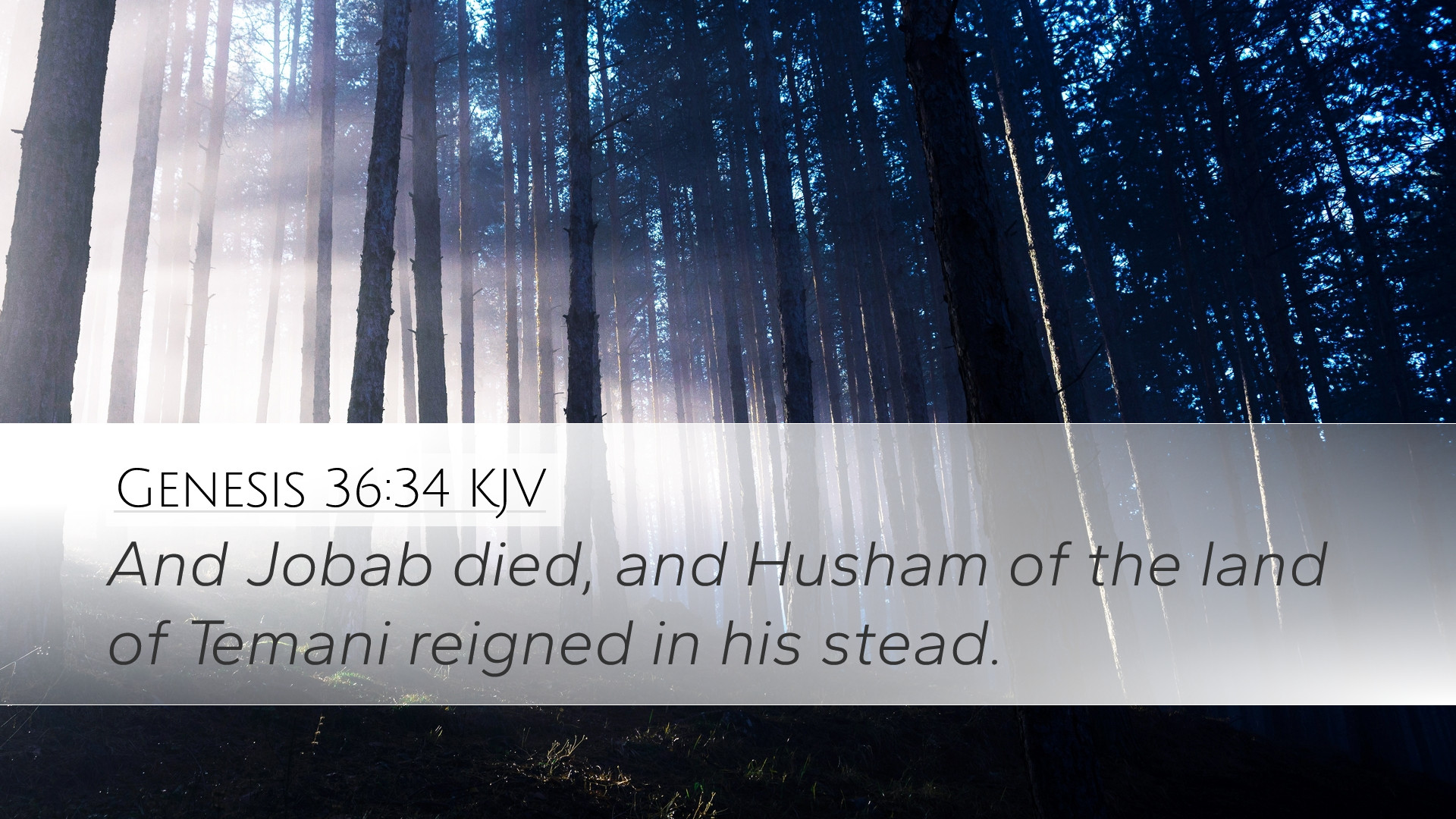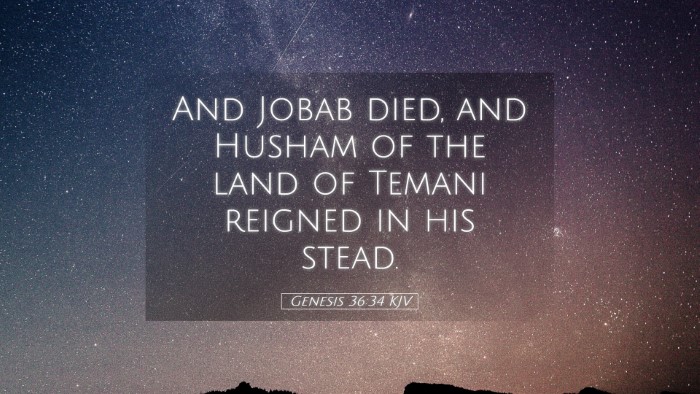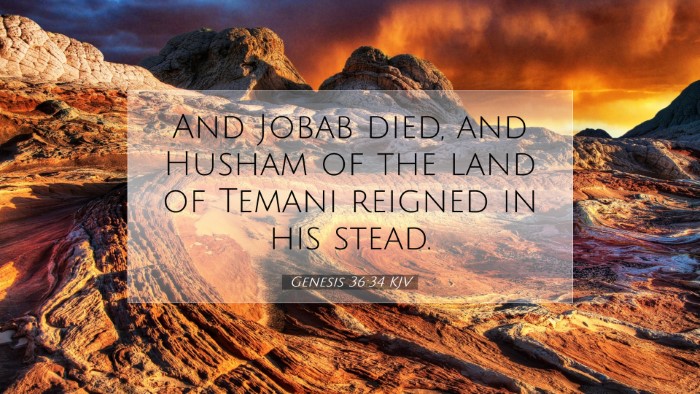Commentary on Genesis 36:34
Genesis 36:34 states: "And Jobab the son of Zerah of Bozrah reigned in his stead." This verse is significant as it marks a transition in leadership, reflecting on the biblical emphasis of lineage and authority within the Edomite kingdom.
Contextual Background
The chapter provides a genealogy of Esau, particularly focusing on the lineage that leads to the Edomite kings. The mention of Jobab, a ruler who came after another king, signifies an important aspect of history and governance in ancient Israelite narratives.
Genealogical Significance
Public domain commentaries emphasize the genealogical structure in the Scriptures, where names hold historical and spiritual significance. Matthew Henry notes that the genealogies are not mere lists; they represent God's unfolding plan through generations.
Jobab as a King
Albert Barnes comments on Jobab's kingship, suggesting that his reign reflects Edom's political structure. This lineage serves to establish a timeline for the region, detailing how power was transferred among leaders.
Theological Implications
This verse invites deeper theological reflection on the sovereignty of God in raising up leaders in various nations, as noted by Adam Clarke. The transition from one king to another is indicative of divine providence, shaping the destinies of peoples and nations.
- Sovereignty of God: God orchestrates the rises and falls of leaders, illustrating His overarching authority in the world.
- Fulfillment of Prophecy: The establishment of kings in Edom corresponds with God's promises and prophecies made earlier in Scripture.
- Judicial Methods: The history of Edom serves as an example of God's judgment and mercy throughout generations.
Leadership and Succession
The succession of kings, particularly the mention of Jobab, allows for the consideration of leadership qualities valued in biblical narratives. Matthew Henry emphasizes that God allows communities to choose their leaders, reflecting both spiritual and moral qualities.
Jobab's Legacy
By examining the broader context of Jobab’s reign, scholars and theologians can explore the qualities that made his leadership significant. It reflects on issues of justice, righteousness, and governance as part of God's plan.
- Righteous Leadership: Biblical leadership is often critiqued based on adherence to God’s commandments and righteousness.
- Impacts of Leadership: The nature of a king’s rule directly affects the moral and spiritual direction of his people.
- Continuity of Rule: Relationships between different kings indicate the historical continuity of the Edomite nation.
Historical Context
Jobab’s reign occurs in a post-Genesis context where Israelite history is described largely from the perspective of God’s covenant people. The mention of specific locations such as Bozrah speaks to the geographical and cultural dynamics present during this era.
Study of Bozrah
Bozrah, as the capital of Edom, plays a significant role historically and prophetically. Adam Clarke references Bozrah's importance within the Edomite territory, illustrating not only its political gravity but also its spiritual connotations.
Relevance for Today
For contemporary audiences, especially pastors and theologians, the passage serves as a reminder of the enduring principles of leadership and governance established in the Scriptures.
- Lessons on Authority: The nature of authority as ordained by God presents timeless lessons applicable in modern leadership.
- Historical Lessons: Understanding the past helps inform current practices and decisions within Christian leadership.
- Spiritual Reflection: Engaging with biblical narratives can foster deeper spiritual insights into God's workings in human history.
Conclusion
Genesis 36:34 encapsulates profound insights regarding leadership, genealogy, and divine providence. The legacy of figures like Jobab, woven into the fabric of divine history, continues to challenge and inspire leaders and scholars alike to seek God’s will in their own contexts.
In summary, this passage serves not only as a historical record but also as a significant teaching tool for understanding God’s providential governance throughout humanity’s history.


